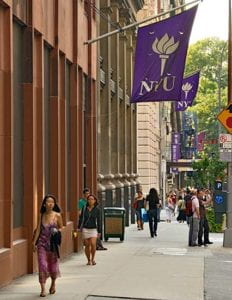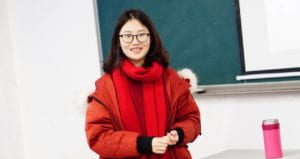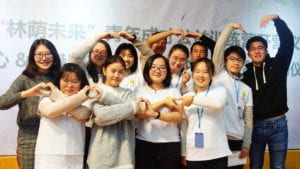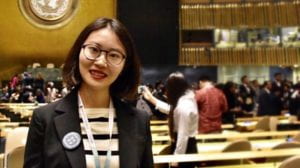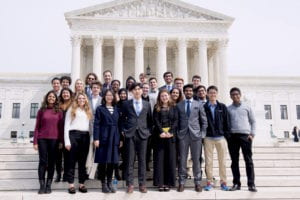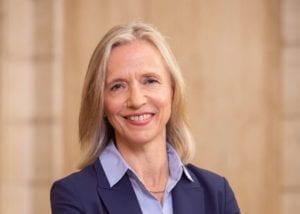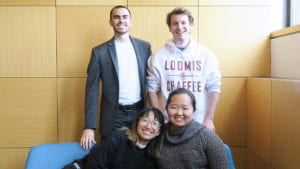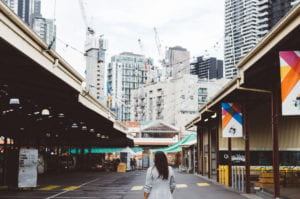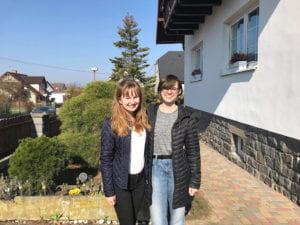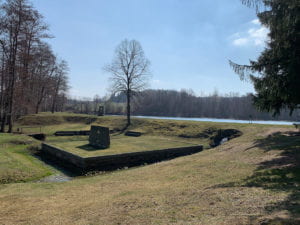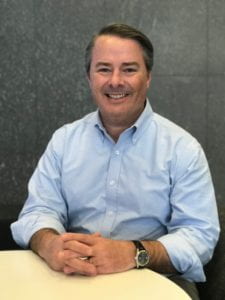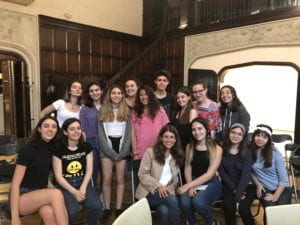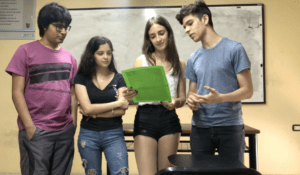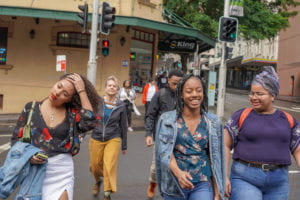 This March, NYU Sydney proudly hosted the Martin Luther King, Jr. Scholars Program Travel Colloquium.
This March, NYU Sydney proudly hosted the Martin Luther King, Jr. Scholars Program Travel Colloquium.
A group of 30 students from across all undergraduate divisions of NYU were accompanied by staff and faculty as they embarked on an intensive five days of education, discovery and service. This all-University scholars program was initially proposed by NYU’s Association of Black Faculty in 1986 with the first group of Martin Luther King, Jr. Scholars beginning their studies in 1987. The program brings together students with a demonstrated commitment to further the legacy of Dr. Martin Luther King, Jr. through excellence in academic achievement and distinguished leadership and community service.
The week officially began on Monday March 18 with a Welcome to Country performed by esteemed Aboriginal Elder and representative of the Metropolitan Local Aboriginal Land Council, Uncle Charles “Chikka” Madden. Madden welcomed the group to Gadigal land and discussed his own life and Aboriginal life and culture more broadly. The Welcome to Country was followed by a brief introduction and orientation from the NYU Sydney team before the scholars participated in their first academic lecture of the week.
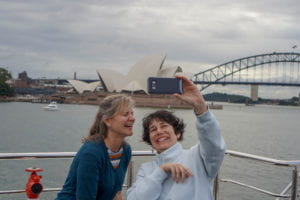 Facilitated by Dr. Laura McLauchlan, this class served to provide the platform of information by which learning throughout the week would be built upon. During this session the scholars explored the diversity of Aboriginal and Torres Strait Islander culture; the relationship between Australian settler culture and Aboriginal Australians; Australia’s experience of migration and multiculturalism; Australians’ relationship with their environment; and Australians’ sense of national identity. After lunch at Science House the group made their way to Customs House at Circular Quay on Sydney Harbour. At Customs House the scholars met with their walking tour guide and spent the next two hours walking around the city and learning about the economic and social forces that shaped modern Sydney. This tour included commentary from above a scale model of Sydney’s Central Business District and surrounding area.
Facilitated by Dr. Laura McLauchlan, this class served to provide the platform of information by which learning throughout the week would be built upon. During this session the scholars explored the diversity of Aboriginal and Torres Strait Islander culture; the relationship between Australian settler culture and Aboriginal Australians; Australia’s experience of migration and multiculturalism; Australians’ relationship with their environment; and Australians’ sense of national identity. After lunch at Science House the group made their way to Customs House at Circular Quay on Sydney Harbour. At Customs House the scholars met with their walking tour guide and spent the next two hours walking around the city and learning about the economic and social forces that shaped modern Sydney. This tour included commentary from above a scale model of Sydney’s Central Business District and surrounding area.
The second day began with a tour of the First Australians Gallery at the Australian Museum. This tour was facilitated by a Wiradjuri woman and it gave students a brief but comprehensive exposure to Aboriginal and Torres Strait Islander life, culture, customs and tradition. At Science House, Australian Historian and NYU Sydney instructor Justine Greenwood’s class examined immigration and multiculturalism in Australia. The day concluded with a visit to the National Centre for Indigenous Excellence. At NCIE the group learned about the history of the organization, some of their current challenges and the services they provide to the local Indigenous community. A highlight of this visit was the opportunity to meet with Wiradjuri woman and NCIE Aunty-in-Residence Glendra Stubbs.
Stubbs serves as a mentor for Indigenous young people from across Australia that are invited to stay at NCIE. Stubbs has worked with a number of state and national bodies including: as an Aboriginal Engagement Advisor for the Royal Commission into Institutional Responses to Child Sexual Abuse, the National Stolen Generations Alliance, and Metro Migrant Resource Centre. She is also a member of the advisory group of the NSW Government child protection and wellbeing program. Stubbs led the group to the NCIE child care center where she discussed her own lived experiences as an Indigenous person growing up in Australia as well as the experiences of members of Australia’s Stolen Generation.
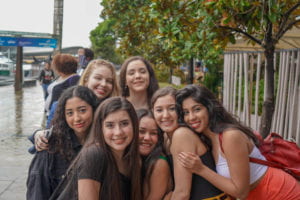 A special treat was arranged for the scholars on their third day in Sydney. On the way to the Blue Mountains a quick stop was made at the Featherdale Wildlife Park. At Featherdale, the students fed kangaroos breakfast and watched with amazement as koalas, dingos and wombats woke for the day. Following their trip to the wildlife park the group made their way to the World Heritage listed Blue Mountains to hike and learn about the region. The area is the traditional home of the Darug and Gundungarra peoples and for decades this location has been a “must see” for visitors to Sydney.
A special treat was arranged for the scholars on their third day in Sydney. On the way to the Blue Mountains a quick stop was made at the Featherdale Wildlife Park. At Featherdale, the students fed kangaroos breakfast and watched with amazement as koalas, dingos and wombats woke for the day. Following their trip to the wildlife park the group made their way to the World Heritage listed Blue Mountains to hike and learn about the region. The area is the traditional home of the Darug and Gundungarra peoples and for decades this location has been a “must see” for visitors to Sydney.
The Blue Mountains are home to 400 species of animals and some of Australia’s most breathtaking landscape. Charles Darwin crossed the Blue Mountains in 1836 and the students walked along the track that carries his name. At the conclusion of the hike the group met National Parks and Wildlife Service Aboriginal Discovery Ranger, Yamindirra Newton and learned about his experiences as sn Indigenous elder living in the region.
On day 4, Drs. McLauchlan and Greenwood co-facilitated a class that served as an opportunity for the group to reflect on their experiences thus far. The fifth and final day of the program was the day of service. The group travelled to Bradley’s Head on Sydney’s lower north shore to participate in a weeding project to protect the habitat of the red-crowned toadlet. The red- crowned toadlet is only found in the Sydney region and the group was charged with protecting its habitat by identifying and disposing of invasiveexotic weed species.
The MLK Jr Scholars Colloquium was a fantastic week in Sydney and the NYU Sydney team cannot wait to host future special programs.
Article by Marcus Neeld.
Images: MLK Scholar Kori Selwyn Vernon
